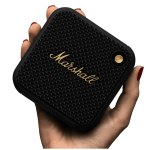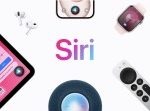I have an embarrassing confession: I’m extremely disorganized. And as someone who is a beauty editor and is constantly barraged with new skincare and makeup products, it can be a huge problem. Add in the fact that I have inattentive ADHD (disorganization can be a symptom of the disorder), and the concept of keeping things organized is a true struggle. Even before I wrote about beauty, I wasn’t the best at keeping my then-small collection in an orderly fashion. (My childhood Caboodle case was always a chaotic scene with Bonne Bell Lip Smackers all over the place.)
While I have a tendency to hoard my favorite items, I do give away a lot of stuff I don’t use to friends and family, or donate to organizations. Still, the amount of products I get, paired with my ADHD brain, makes for a nightmare scenario more than a beauty lover’s dream. Plus, it’s not like I have a glam room like a celebrity or influencer, so real estate is sacred and limited. But after reaching the point where I became desperate for a reprieve from my avalanches of lipsticks and serums, I turned to ADHD and organization experts for advice on how to dig myself out of this hole.
I feel like anyone who has ADHD or problems staying organized in general, can benefit from their professional tips, so keep scrolling for some helpful tips and everything I learned.
Regina Lark, PhD, an organizing expert who specializes in ADHD and chronic organization, immediately spotlighted an unhealthy habit I have of putting myself down when it comes to being messy. When I called my desk situation “bad,” she immediately corrected me. “Don’t label, judge, or resent,” Lark said. “It’s uncomfortable, it feels shitty, yes. But it’s not bad. It’s not immoral. It’s just how you’re wired.” She went on to explain how people with ADHD have an impaired executive function, which manages our time, emotions, planning, decision making, and working memory. “I think that is very significant when it comes to clutter,” she says.
Ría Safford, the professional organizer and owner of RíOrganize, who has organized the homes of Chrissy Teigen and Jen Atkin, admitted that she’s “in the process of confirming whether she has ADHD,” and is something that she suspects. I found this to be surprising coming from a professional organizer. “A thing that I share all the time is I actually have the mind and habits of 90 percent of our clients, so I totally understand where you’re coming from,” she says. Safford suggested that I implement a regular “purge time” for my products, which might be as frequent as once a month for me. “It has to be every four weeks of truly going through everything,” she says.
I had some ideas about where to start, so I asked Lark whether she thought some sort of intake system could work. “Let me just say this about systems, they only work if you work it,” she says. “You need an intake system, you need a system for how you’re going to deal with the products while you’re dealing with them, and then you need an exit system.”
For my existing products, Lark encouraged me to take a good look at “absolutely everything” that I have, and when it expires, so I can decide whether to get rid of it. She then suggested I start by concentrating on one drawer, first estimating how long it would take for me to declutter it, then taking note of how it actually took, and go from there. I started with my precious lipstick drawer, which I thought would be the hardest and take at least an hour, so I was surprised when it took me just 20 minutes. I do think I had the right mindset going in, which parallels some advice from Safford: “I always say the two things that are the most important before any project is being in the right mindset, and then allowing yourself enough time.”
“For people with ADHD, if they don’t decide the time, the day, the tools they may need, and where the things are going to live, if they don’t have those elements, when you go to tackle the mess, it’s not going to happen,” says Lark. I find this to be true about myself as I easily get discouraged doing things if I don’t have exactly what I need to complete them.
Meanwhile, Safford says that when it comes to makeup, the more micro-organized makeup is, the better. “It’s really about sub-categorizing everything,” she says. “It’s all these little items and so much of it, so you want it to be something well-thought-out, and anything that makes it easier for you to access, like divided turntables, or an upper shelf, or a deep bin or basket with labeled vinyl pouches for all the different categories.”
Ahead, I’m detailing 12 of the best items for organizing products that are great for both big and small collections, plus more helpful tips whether you have ADHD or not. Now, will I keep all of my beauty products organized? Only time will tell, but I definitely have more hope for myself now.
Because I don’t have an office or “glam room,” I thought it would be best if I use a desk that could double as a vanity, especially since a lot of the time I’m writing, I’ll be testing products at the same time. I was lucky to receive this gorgeous Slaystation from Impressions Vanity, which is exactly what I needed. Plus, it comes in pink! There are ample drawers for each makeup category, plus the top of the vanity is made of glass so I can display palettes and other pretty packaging. (My vintage makeup also looks cute displayed this way and without them being “out,” so there’s even less clutter.)
Micro-organizing makeup by using dividers and small compartments inside drawers helps keep things in place, while also looking cute. These dividers, which can hold pressed powders, highlighters, blush, and other small palettes, are one example of how I’m optimizing the space in my vanity.
As part of my intake and testing system, I turned to what Safford calls “stackable solutions” in the form of these shoe drawers from The Container Store. They may be for shoes, but can easily hold beauty products, and, of course, are able to stack neatly on top of each other to optimize storage. These have become a particular favorite in my organization journey.
These are another option for stackable storage for larger products. I use these in my hallway closet, where I keep bigger items like skincare, hair care and hot tools. You can also get dividers for these, which is necessary for me, since the bigger the space, the more opportunity for things to get out of place.
Safford’s favorite hack for creating more storage is an over-the-door organizer, whether it’s a bathroom or closet door. “Using an over-the-door system can literally creåte storage anywhere, and make shelves where shelves didn’t even exist,” she says. “There are different organizers that can be used inside to compartmentalize it even more so you can stand up products. It creates a whole new closet of shelves, essentially.”
Labeling your storage drawers not only looks cute, says Safford, but is key. “It can make a pantry look really great on Instagram, but especially for people like you and me, it holds us accountable,” she says. “It forces us to take a moment and put things where it belongs.”
Keeping my makeup brushes clean is another issue that’ll I get to another time, ahem, but one of the biggest problems I have is that I don’t have a great place to leave them as they dry (it’s usually on a towel on the counter or something). This stand doubles as storage and a place for them to dry. Brilliant.
Safford says that having organizers that help you access products easily is a good choice, so having a rotating makeup organizer like this is kind of brilliant. This particular one comes in different colors if you’re not into a standard clear one.
Aside from my vanity/desk, I have a few of my daily personal products in my bathroom, and use a storage case like this. (I use the top two smaller drawers to hold my left and right contacts — super handy if you’re a contacts-weårer!
This is another option for storage on top of a dresser or vanity and comes with drawers and a bunch of compartments. The pastel colors look super chic, again, if you’re not into that standard clear plastic look many organizers tend to come in.
Safford is a proponent of pouches for all types of storage, but for makeup, I found these handy for lip liners and eyeliners. You can also easily stick a label on them and keep them in a drawer.
This is another extremely helpful way for my ADHD brain to keep everything in my drawers organized, with tons of separated compartments for smaller items. (Otherwise, I’ll just throw it all in there.) It saves space, makes things easy to find, and just looks so much neater in general.
Up next, These Are the Under-$75 Sephora Picks I Swear By as a 41-Year-Old Beauty Editor






